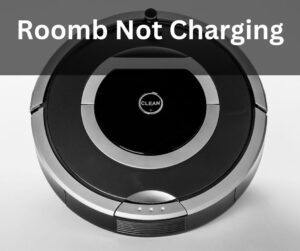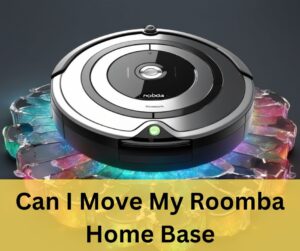The Roomba is a popular brand of automated vacuum cleaners known for its ease of use and efficiency. Battery life is an important factor that influences the efficacy of a Roomba. In this blog post, we will investigate the battery lifespan of Roomba vacuums and provide suggestions on how to extend battery life. Understanding your Roomba’s battery life is critical to ensuring that it runs smoothly and effectively, and to avoid unexpected disruptions in the cleaning operation.
How long do Roomba batteries last

Roomba vacuum battery life can vary based on a variety of factors, including the model of the Roomba, frequency of operation, and kind of surface being cleaned. A Roomba battery may typically last 60 to 90 minutes of continuous cleaning before needing to be recharged.
However, certain high-end versions, such as the Roomba i7 and Roomba s9, have a longer battery life of up to 120 minutes before needing to be recharged. Using the Roomba’s scheduling option and cleaning less regularly can also help to extend battery life.
It is important to note that the kind of surface being cleaned can also affect the battery life of a Roomba. Cleaning on a hardwood floor, for example, will normally take less battery power than cleaning on a shag carpet, extending battery life.
Roomba also has an intelligent energy management system that improves battery performance throughout the cleaning cycle. This helps to save energy and extend the battery’s life.
Finally, depending on the model and usage, the battery life of a Roomba vacuum can range from 60 to 120 minutes of continuous cleaning. Using the scheduling option, cleaning less regularly, and cleaning on surfaces that require less power can all assist to extend the battery’s life.
How we can extend the battery life span of Roomba
There are several ways to extend the battery life span of a Roomba vacuum cleaner:
- Make use of the Roomba’s scheduling feature: Set the Roomba to clean while you are not at home or when you do not require it to clean; this will allow the Roomba to finish its cleaning cycle before the battery runs out.
- Clean less frequently: Instead of cleaning every day, consider cleaning every other or third day. This will assist you to preserve battery power and extend battery life.
- Surfaces that require less electricity to clean: Cleaning hardwood floors or tile takes less effort than cleaning shag carpet. This can assist to extend battery life.
- Keep the Roomba’s brush and filter clean: A filthy brush or filter might cause the Roomba to consume more power, so keep them clean.
- Remove impediments: Roomba’s sensors help it to maneuver around barriers, but if it encounters the same obstacle again, it will waste more power. Removing obstructions from the Roomba’s cleaning route can aid in battery power conservation.
- Make use of Roomba’s battery management system: Roomba has an integrated battery management technology that improves battery performance throughout the cleaning cycle. This helps to save energy and extend the battery’s life.
- Charge the Roomba battery correctly: Follow the manufacturer’s directions for charging the Roomba battery, and never allow the battery to run entirely flat.
- Upgrade the battery: If the battery life is insufficient, you might consider upgrading to a higher-capacity battery, which will provide you with extra runtime.
Is it possible to change the Roomba battery?
Yes, the battery in the Roomba may be replaced; it is a user-replaceable battery. However, it is suggested that only manufacturer-approved batteries be used to ensure the device’s safety and compatibility.
How can I tell if my Roomba battery is dead?
A faulty Roomba battery can cause several symptoms, including reduced runtime, sluggish charging, or the Roomba not turning on at all. The battery status may also be viewed via the Roomba app or on the device’s display if one is available. In any event, if the Roomba isn’t working well, it’s a good idea to check the battery state and, if necessary, replace it.
Do Roomba batteries expire?
Yes, Roomba batteries can malfunction over time. A Roomba’s battery life varies based on factors such as frequency of use and the kind of surface being cleaned. A Roomba’s battery life is usually approximately 2-3 years, although it might live longer or shorter depending on how it is used and maintained. A faulty Roomba battery will exhibit symptoms such as diminished runtime, sluggish charging, or the Roomba failing to power on at all. If you feel the battery is faulty, you should replace it.
Is it a terrible idea to leave Roomba charging?
It is normally OK to leave Roomba in charge. The Roomba includes an automated charging system that stops charging the battery once it reaches full capacity, preventing overcharging. However, charging the Roomba for a lengthy amount of time might reduce the battery’s lifetime over time. After the Roomba has finished charging, it is best to unplug it from the charger.
What can I do with an old Roomba battery?
Here are a few things you can do with an old Roomba battery:
- Many municipalities have recycling programs that accept old batteries. Find out where you can recycle batteries in your region by contacting your local government or waste management organization.
- If the battery still has a charge, you may repurpose it for other low-power gadgets like remote control cars, portable lights, and other electrical equipment.
- Sell it: You may sell your old batteries to a firm or individual who may be able to utilize them for their projects or recycle them.
- Properly dispose of it: If the battery is no longer useful and cannot be recycled, it should be properly disposed of. Instead of throwing it in the trash, take it to a designated hazardous waste collection center or contact the manufacturer for proper disposal instructions.
Conclusion,
A Roomba vacuum cleaner’s battery life might vary based on factors such as the model, frequency of usage, and the kind of surface being cleaned. A Roomba battery may typically last 60 to 90 minutes of continuous cleaning before needing to be recharged. Some high-end versions, on the other hand, can last up to 120 minutes. To extend battery life, use Roomba’s scheduling option, clean less regularly, and clean on surfaces that demand less power. Keeping the Roomba’s brush and filter clean, as well as eliminating impediments from the cleaning route, can also assist to preserve battery power. You can guarantee that your Roomba operates smoothly and effectively by understanding its battery life and taking efforts to extend it.



